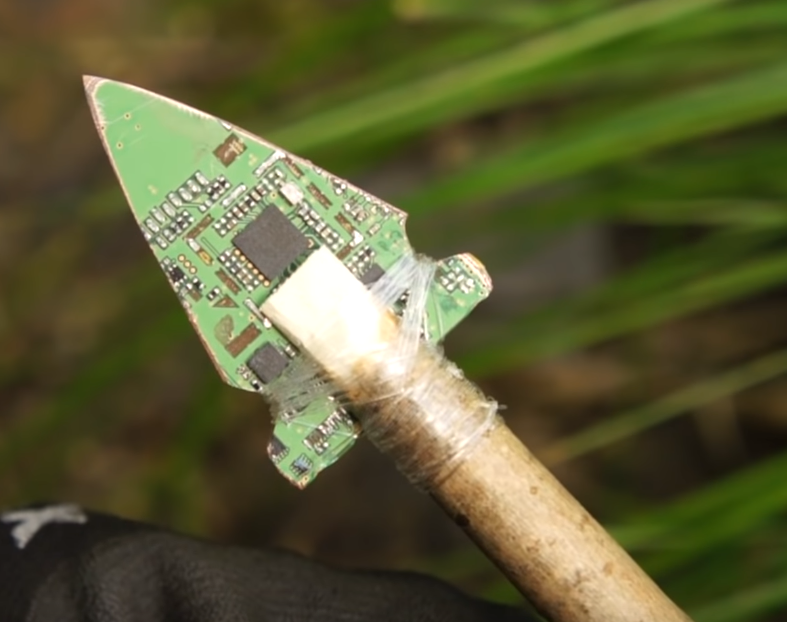n00b question, sorry. If I had a desktop that could hold 4 HD and 2 SSD, could I turn it into a NAS? Could someone point me in the right direction if this makes sense?
yes, try freenas/truenas
You totally can, but since it will be on all day with 4 hdd look into wattages you want to live with. There are some small NUCs or Pi based NAS with low wattages. There is OpenMediaVault, FreeNAS/TrueNAS software to install
Hey sorry, thinking on this more, could I just turn on the NAS when desired? What is the benefit of running it constantly?
Yep, look into Wake On LAN if you just want to power the NAS on remotely.
My NAS also powers on at certaIn times of day and off again after a while - IF - no-one’s connected / no network traffic / etc.
I do NOT need my NAS on at 3am…
Edit : forgot to say, check out OpenMediaVault
Note that there is some reliability drawback of spinning hard disks on and off repeatedly. maybe unintuitively HDDs that spin constantly can live much longer than those that spend 90% of their time spun down.
This might not be relevant if you use only SSDs, and might never affect you, but it should be mentioned.
It’ll work fine. A NAS is just a PC. Try Unraid if you want a user friendly UI. It costs money but it’s only a one off payment for a lifetime license, and they have a free trial.
Another option is to use openmediavault.
I haven’t looked at truenas.
TrueNAS is very good at being a NAS. I used it for some time but eventually moved to CasaOS because it’s better at being a home server.
Anything that can can provide storage attached to the network is a potential NAS. It doesn’t take a lot of power to just offer and store files. If you start getting into stuff like live transcoding or heavy encrypt/decrypt that’s a bit different matter.
Of course. Just put disks in and set up whatever remote filesystem and it’s a NAS.
Yes. Go look at TrueNAS Scale
Acronyms, initialisms, abbreviations, contractions, and other phrases which expand to something larger, that I’ve seen in this thread:
Fewer Letters More Letters LXC Linux Containers NAS Network-Attached Storage NUC Next Unit of Computing brand of Intel small computers Plex Brand of media server package RAID Redundant Array of Independent Disks for mass storage SATA Serial AT Attachment interface for mass storage SSD Solid State Drive mass storage ZFS Solaris/Linux filesystem focusing on data integrity
[Thread #377 for this sub, first seen 27th Dec 2023, 01:15] [FAQ] [Full list] [Contact] [Source code]
Yeah. That’s what I used to do when I started out.
The simplest thing to do is install Debian on the computer and create partitions. You have 4 HDDs and 2 SSDs so it’d be stupid to create 6 separate partitions for each drive.
See in the BIOS if your motherboard supports software RAID1, so you are protected against drive failure somewhat. This will allow you to get something barebones running that’ll use at least 2 drives with redundancy. I assume the mobo RAID1 is stupid and only allows for max 2 drives, so the other drives will be just laying around useless. If that’s the case, probably use the 2 SSDs first. I see other posters recommending higher orders of RAID, but I only have 2 HDDs so I never really delved into that :P Perhaps that’s sound
With a system like that you could probably set up some small NFS for sharing your files by configuring it manually from the terminal.
Note that going with raw linux is “simpler” in the sense that it’s perhaps easier to wrap your head around or tinker with, but TrueNAS or Unraid have GUIs that will allow you to create e.g. the mentioned NFS share with a few clicks, rather than having to do it from the terminal. Depends on what you’re looking for. You could move up to TrueNAS or Unraid once you’ve played with raw Linux enough for example.
Once you have that,
I only ever dealt with ZFS and TrueNAS. ZFS will allow you to create a “partition” (pool in zfs terms) from many drives at the same time, so you’d be able to use more drives than just the two from RAID1.
The drives that you have are probably shitty SMR drives whose write speed dramatically slows down once you’re writing to them for a longer time. Consider buying CMR drives in the future, or just going all-SSD if it fits your usecase. ZFS hates SMR drives.
i’d avoid BIOS-based RAID… it doesn’t really offer many benefits over linux-based raid like MDADM, and MDADM offers a LOT of up-sides for portability, repairability, diagnostics, etc
Thanks!







